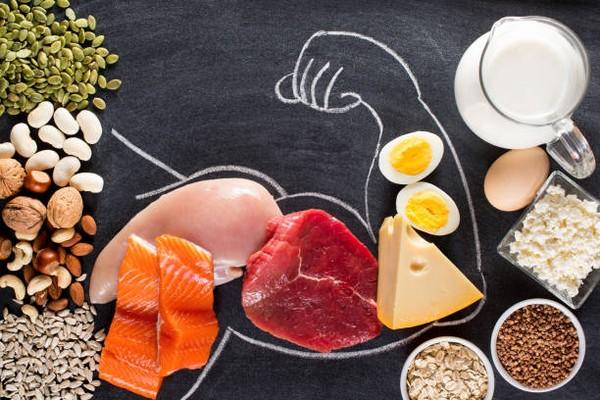Gaining muscle is a common goal for many fitness enthusiasts and athletes. But how do you know how many calories you should eat to build muscle effectively? In this article, we’ll break down the basics of calorie intake for muscle growth, explore the science behind it, and provide practical tips to help you reach your goals.
Understanding Calories and Muscle Growth
Calories are units of energy that our bodies use to perform daily functions. When it comes to building muscle, calories play a crucial role. Your body needs extra energy to repair and grow muscle fibers after exercise. This means that to gain muscle, you need to consume more calories than your body burns.
The Science Behind Muscle Growth
Muscle growth, or hypertrophy, occurs when muscle fibers are exposed to stress and damage through exercise, particularly resistance training. This stress causes small tears in the muscle fibers. Your body repairs these tears by adding more muscle tissue, making the muscle stronger and larger. To support this repair process, you need to provide your body with enough calories and nutrients.
How Many Calories Do You Need?
The number of calories you need to eat to gain muscle depends on several factors:
Basal Metabolic Rate (BMR): This is the number of calories your body needs to maintain basic physiological functions at rest. BMR is influenced by your age, gender, weight, and height.
Activity Level: Your daily activity level affects your total caloric needs. If you’re very active, you’ll need more calories than someone who is sedentary.
Exercise Routine: The type, intensity, and frequency of your workouts impact how many calories you need. Strength training and resistance exercises typically require more calories than cardio alone.
Body Composition: Your current body composition (the ratio of muscle to fat) can influence your caloric needs. More muscle mass generally means a higher metabolic rate, so you may need more calories to support muscle growth.
Calculating Your Caloric Needs
To gain muscle, you need to consume a caloric surplus—eating more calories than your body burns. Here’s a simple way to estimate how many calories you need:
Calculate Your BMR: You can use the Harris-Benedict equation or an online BMR calculator. The equation is different for men and women:
- For men: BMR = 88.362 + (13.397 × weight in kg) + (4.799 × height in cm) – (5.677 × age in years)
- For women: BMR = 447.593 + (9.247 × weight in kg) + (3.098 × height in cm) – (4.330 × age in years)
Determine Your Total Daily Energy Expenditure (TDEE): Multiply your BMR by an activity factor based on your activity level:
- Sedentary (little or no exercise): BMR × 1.2
- Lightly active (light exercise/sports 1-3 days/week): BMR × 1.375
- Moderately active (moderate exercise/sports 3-5 days/week): BMR × 1.55
- Very active (hard exercise/sports 6-7 days a week): BMR × 1.725
- Super active (very hard exercise/physical job): BMR × 1.9
Add a Caloric Surplus: To build muscle, you should add about 250-500 calories to your TDEE. A smaller surplus (250 calories) is often recommended to ensure you gain muscle without excessive fat gain, while a larger surplus (500 calories) might be suitable if you’re looking for more rapid growth.
See Also: 9 Drinks to Eat Before Bed to Lose Belly Fat
Macronutrient Distribution
While total calorie intake is crucial, the distribution of macronutrients—proteins, carbohydrates, and fats—also plays a significant role in muscle growth.
Protein: Protein is essential for muscle repair and growth. Aim for 1.6-2.2 grams of protein per kilogram of body weight per day. Good sources include chicken, fish, eggs, dairy, and plant-based proteins like beans and lentils.
Carbohydrates: Carbs provide energy for your workouts and help replenish glycogen stores in your muscles. Aim for 4-7 grams of carbohydrates per kilogram of body weight per day. Focus on whole grains, fruits, and vegetables.
Fats: Healthy fats support hormone production and overall health. Aim for about 0.5-1 gram of fat per kilogram of body weight per day. Include sources like avocados, nuts, seeds, and olive oil.
Timing and Frequency
Meal timing and frequency can also impact muscle growth. Here are some tips:
Pre-Workout: Eating a meal rich in protein and carbohydrates 1-2 hours before your workout can help fuel your exercise and improve performance.
Post-Workout: Consuming a protein-rich meal or snack within 30 minutes to an hour after your workout can help with muscle repair and growth.
Regular Meals: Eating smaller, balanced meals every 3-4 hours can help maintain energy levels and provide your body with a steady supply of nutrients.
Monitoring Progress
Tracking your progress is essential to ensure you’re on the right path. Monitor your weight, muscle mass, and strength levels regularly. If you’re not seeing the desired results, adjust your caloric intake and macronutrient distribution as needed.
Practical Tips for Success
Plan Your Meals: Prepare your meals in advance to ensure you’re meeting your caloric and macronutrient needs. Use meal prep strategies to save time and stay on track.
Stay Hydrated: Drink plenty of water throughout the day. Proper hydration supports overall health and helps with muscle recovery.
Get Enough Sleep: Quality sleep is crucial for muscle recovery and growth. Aim for 7-9 hours of sleep per night.
Consult a Professional: If you’re unsure about your caloric needs or how to create a balanced diet, consider consulting a registered dietitian or nutritionist.
Conclusion
Gaining muscle requires a careful balance of calories, macronutrients, and overall nutrition. By understanding your caloric needs and focusing on a well-rounded diet, you can support muscle growth effectively. Remember to monitor your progress and adjust your intake as needed to achieve your fitness goals.


